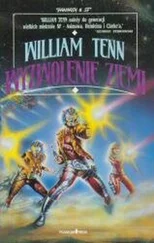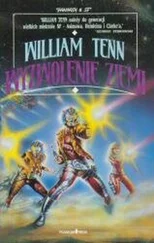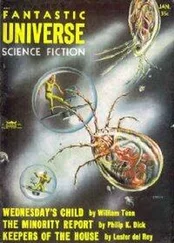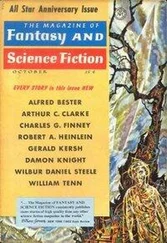William Tenn - Firewater
Здесь есть возможность читать онлайн «William Tenn - Firewater» весь текст электронной книги совершенно бесплатно (целиком полную версию без сокращений). В некоторых случаях можно слушать аудио, скачать через торрент в формате fb2 и присутствует краткое содержание. Год выпуска: 1952, Издательство: Street & Smith Publications, Жанр: Фантастика и фэнтези, на английском языке. Описание произведения, (предисловие) а так же отзывы посетителей доступны на портале библиотеки ЛибКат.
- Название:Firewater
- Автор:
- Издательство:Street & Smith Publications
- Жанр:
- Год:1952
- ISBN:нет данных
- Рейтинг книги:4 / 5. Голосов: 1
-
Избранное:Добавить в избранное
- Отзывы:
-
Ваша оценка:
- 80
- 1
- 2
- 3
- 4
- 5
Firewater: краткое содержание, описание и аннотация
Предлагаем к чтению аннотацию, описание, краткое содержание или предисловие (зависит от того, что написал сам автор книги «Firewater»). Если вы не нашли необходимую информацию о книге — напишите в комментариях, мы постараемся отыскать её.
magazine in 1952.
Firewater — читать онлайн бесплатно полную книгу (весь текст) целиком
Ниже представлен текст книги, разбитый по страницам. Система сохранения места последней прочитанной страницы, позволяет с удобством читать онлайн бесплатно книгу «Firewater», без необходимости каждый раз заново искать на чём Вы остановились. Поставьте закладку, и сможете в любой момент перейти на страницу, на которой закончили чтение.
Интервал:
Закладка:
“Eyes? You think they’re eyes?” Funatti asked, rubbing his small dark fists against each other futilely. “I know what the scientists say—that every dot is equivalent to one person and the whole bottle is like a family or a city, maybe. But how do they know? It’s a theory, a guess. I say they’re eyes.”
Yost hunched his great body half out of the open window and shaded his vision with his uniform cap against the sun. “Look at it,” they heard him say, over his shoul-der. A nasal twang, long-buried, came back into his voice as heaving emotion shook out its cultivated accents. “A-setting up there, a-staring and a-staring. So all-fired interested in how we get on and off a busy highway! Won’t pay us no never mind when we try to talk to it, when we try to find out what it wants, where it comes from, who it is. Oh, no! It’s too superior to talk to the likes of us! But it can watch us, hours on end, days without end, light and dark, winter and summer; it can watch us going about our business; and every time we dumb two-legged animals try to do something we find complicated, along comes a blasted ‘dots-in-bottle’ to watch and sneer and—”
“Hey there, man,” Funatti leaned forward and tugged at his partner’s green jerkin. “Easy! We’re SIC, on business.”
“All the same,” Yost grunted wistfully, as he plopped back into his seat and pressed the power button, “I wish I had Daddy’s little old M-1 Garand right now.” They bowled forward, smoothed into the next long elevator section and started to descend. “It would be worth the risk of getting pinged. ”
And this was a UM man, Hebster reflected with acute discomfort. Not only UM, at that, but a member of a special group carefully screened for their lack of anti-Primey prejudice, sworn to enforce the reservation laws without discrimination and dedicated to the proposition that Man could somehow achieve equality with Alien.
Well, how much dirt-eating could people do? People without a business sense, that is. His father had hauled himself out of the pick-and-shovel brigade hand over hand and raised his only son to maneuver always for greater control, to search always for that extra percentage of profit.
But others seemed to have no such abiding interest, Algernon Hebster knew regretfully.
They found it impossible to live with achievements so abruptly made inconsequential by the Aliens. To know with certainty that the most brilliant strokes of which they were capable, the most intricate designs and clever careful workmanship, could be duplicated—and surpassed—in an instant’s creation by the outsiders and was of interest to them only as a collector’s item. The feeling of inferiority is horrible enough when imagined; but when it isn’t feeling but knowledge, when it is inescapable and thoroughly demonstrable, covering every aspect of constructive activity, it becomes unbearable and maddening.
No wonder men went berserk under hours of unwinking Alien scrutiny—watching them as they marched in a colorfully uniformed lodge parade, or fished through a hole in the ice, as they painfully maneuvered a giant transcontinental jet to a noiseless landing or sat in sweating, serried rows chanting to a single, sweating man to “knock it out of the park and sew the whole thing up!” No wonder they seized rusty shotgun or gleaming rifle and sped shot after vindictive shot into a sky poisoned by the contemptuous curiosity of a brown, yellow or vermilion “bottle.”
Not that it made very much difference. It did give a certain release to nerves backed into horrible psychic corners. But the Aliens didn’t notice, and that was most important. The Aliens went right on watching, as if all this shooting and uproar, all these imprecations and weapon-wavings, were all part of the self-same absorbing show they had paid to witness and were determined to see through if for nothing else than the occasional amusing fluff some member of the inexperienced cast might commit.
The Aliens weren’t injured, and the Aliens didn’t feel attacked. Bullets, shells, buckshot, arrows, pebbles from a slingshot—all Man’s miscellany of anger passed through them like the patient and eternal rain coming in the opposite direction. Yet the Aliens had solidity somewhere in their strange bodies. One could judge that by the way they intercepted light and heat. And also—
Also by the occasional ping .
Every once in a while, someone would evidently have hurt an Alien slightly. Or more probably just annoyed it by some unknown concomitant of rifle-firing or javelin-throwing.
There would be the barest suspicion of a sound—as if a guitarist had lunged at a string with his fingertip and decided against it one motor impulse too late. And, after this delicate and hardly heard ping, quite unspectacularly, the rifleman would be weaponless. He would be standing there sighting stupidly up along his empty curled fingers, elbow cocked out and shoulder hunched in, like a large oafish child who had forgotten when to end the game. Neither his rifle nor a fragment of it would ever be found. And—gravely, curiously, intently—the Alien would go on watching.
The ping seemed to be aimed chiefly at weapons. Thus, occasionally, a 155mm howitzer was pinged, and also, occasionally, unexpectedly, it might be a muscular arm, curving back with another stone, that would disappear to the accompaniment of a tiny elfin note. And yet sometimes—could it be that the Alien, losing interest, had become careless in its irritation?—the entire man, murderously violent and shrieking, would ping and be no more.
It was not as if a counterweapon were being used, but a thoroughly higher order of reply, such as a slap to an insect bite. Hebster, shivering, recalled the time he had seen a black tubular Alien swirl its amber dots over a new substreet excavation, seemingly entranced by the spectacle of men scrabbling at the earth beneath them.
A red-headed, blue-shirted giant of construction labor had looked up from Manhattan’s stubborn granite just long enough to shake the sweat from his eyelids. So doing, he had caught sight of the dot-pulsing observer and paused to snarl and lift his pneumatic drill, rattling it in noisy, if functionless, bravado at the sky. He had hardly been noticed by his mates, when the long, dark, speckled representative of a race beyond the stars turned end over end once and pinged.
The heavy drill remained upright for a moment, then dropped as if it had abruptly realized its master was gone. Gone? Almost, he had never been. So thorough had his disappearance been, so rapid, with so little flicker had he been snuffed out—harming and taking with him nothing else—that it had amounted to an act of gigantic and positive noncreation.
No, Hebster decided, making threatening gestures at the Aliens was suicidal. Worse, like everything else that had been tried to date, it was useless. On the other hand, wasn’t the Humanity First approach a complete neurosis? What could you do?
He reached into his soul for an article of fundamental faith, found it. “I can make money,” he quoted to himself. “That’s what I’m good for. That’s what I can always do.”
As they spun to a stop before the dumpy, brown-brick armory that the SIC had appropriated for its own use, he had a shock. Across the street was a small cigar store, the only one on the block. Brand names which had decorated the plate-glass window in all the colors of the copyright had been supplanted recently by great gilt slogans. Familiar slogans they were by now—but this close to a UM office, the Special Investigating Commission itself?
At the top of the window, the proprietor announced his affiliation in two huge words that almost screamed their hatred across the street:
Читать дальшеИнтервал:
Закладка:
Похожие книги на «Firewater»
Представляем Вашему вниманию похожие книги на «Firewater» списком для выбора. Мы отобрали схожую по названию и смыслу литературу в надежде предоставить читателям больше вариантов отыскать новые, интересные, ещё непрочитанные произведения.
Обсуждение, отзывы о книге «Firewater» и просто собственные мнения читателей. Оставьте ваши комментарии, напишите, что Вы думаете о произведении, его смысле или главных героях. Укажите что конкретно понравилось, а что нет, и почему Вы так считаете.












